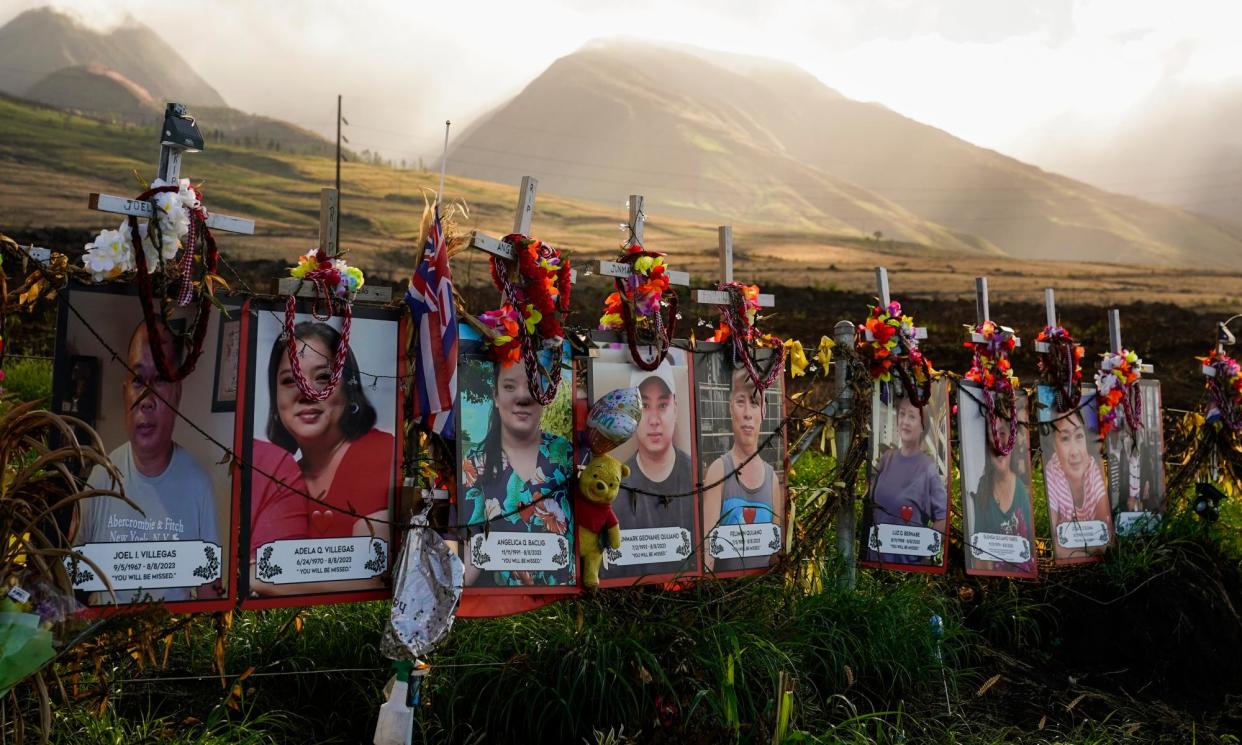Maui wildfire survivors can apply for $175m One Ohana Fund starting 1 March

Hawaii’s governor, Josh Green, unveiled on Tuesday a multimillion-dollar fund to compensate families of people who were killed on Maui during the deadliest wildfire in the nation in more than a century.
The announcement marks the first phase of the $175m One Ohana Fund that was proposed on 8 November, two months after at least 101 were killed in Lahaina, a coastal town on Maui. If found eligible, people who lost a loved one will receive $1.5m, and disbursements for those who survived but were gravely injured will vary, according to Green’s press release. The fund will begin accepting applications on 1 March.
Related: Exclusive: Maui wildfire survivors face soaring rates of depression and lung problems – study
Green framed the fund as an option for survivors who are considering suing the state of Hawaii, Hawaiian Electric or other utilities and landowners for their role in the blaze.
“As governor, providing this certain and more timely option was the most direct path possible toward healing and recovery envisioned with our partners,” Green said.
Those who accept the fund’s money will waive their right to sue the entities who contributed to the fund. Hawaiian Electric is the single largest underwriter at $75m, followed by the state of Hawaii at $65m, landowner Kamehameha Schools at $17.5m and Maui county at $10m.
Green said those who sue could potentially wait up to five years before they receive money and may incur significant legal costs.
Multiple lawsuits have already been filed on behalf of wildfire victims against the state, the county, utilities and landlords.
Hawaii lawmakers have not appropriated the $65m needed for the state’s share. Green said he expects they will do so after seeing this is the “compassionate” approach and that it’s a way for the state to avoid expensive and lengthy litigation.
While the opening of applications represents the beginning of a long healing process for those who lost family members and were injured during the fire, thousands of Lahainians remain displaced and living out of hotel rooms. For those who escaped the blaze physically unharmed, the mental scars left by the disaster persist and are compounded by the loss of housing and stability.
“As soon as I wake up, there’s a physical tightness in my chest. I worry about where we will go when the help runs out. I am grateful, but this hotel is not a home, it’s a shelter,” Diana Tevaga, a Lahaina fire survivor who is living out of a hotel through a Red Cross program that is set to expire in April, said. “It’s not right that so many of us are still here. How can we dream about rebuilding when we don’t have a stable home?”

